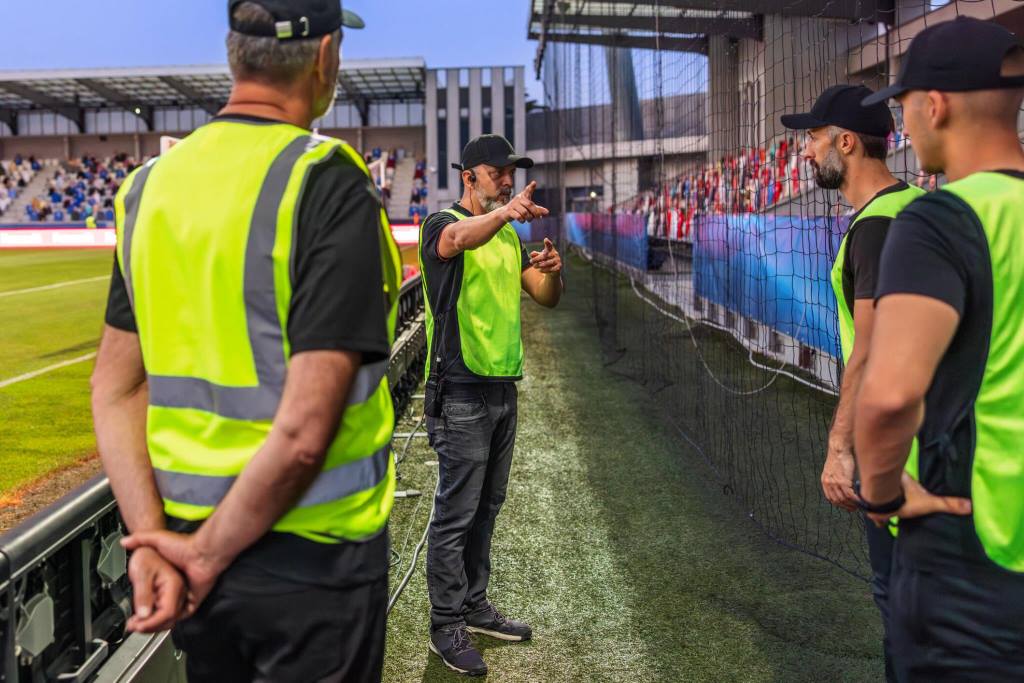Organizing a successful sports event requires meticulous planning and execution. From the initial concept to the final whistle, every detail plays a crucial role in the overall experience for both participants and spectators. In this comprehensive guide, we delve into the intricacies of sports event management and ticketing, providing you with a playbook for sprinting to success.
Setting the Stage
The first step in any successful sports event is setting the stage for a memorable experience. This involves choosing the right venue, understanding the target audience, and establishing the event’s objectives. Whether it’s a local tournament or a large-scale championship, the venue sets the tone for the entire event. Consider factors like accessibility, amenities, and capacity to ensure a seamless experience for attendees.
Tailor your event to cater to their interests and preferences, ensuring maximum engagement. Whether it’s a family-friendly atmosphere or an intense competition, aligning the event with your audience’s expectations is key. For the best sports event management, visit Ticket Manager. Their expert guidance ensures seamless execution, turning your event into an unforgettable success.
Crafting a Game Plan
Once the stage is set, it’s time to craft a comprehensive game plan. This involves outlining the event schedule, coordinating with stakeholders, and securing necessary permits and permissions. Create a detailed timeline that covers every aspect of the event, from setup to teardown.
Communication is key during this phase. Establish clear channels of communication with vendors, sponsors, and participants. Regular updates and meetings will help ensure that everyone involved is on the same page, reducing the likelihood of misunderstandings and last-minute hiccups.
Team Formation and Roles
Building a winning team is essential for sports event success. Identify key personnel, including event managers, volunteers, and security staff. Clearly define roles and responsibilities to avoid confusion and ensure smooth coordination on the day of the event.

Engage volunteers who are passionate about the sport and the event’s success. Provide adequate training and support, fostering a sense of teamwork and commitment. A well-organized and motivated team contributes significantly to the overall success of the event.
Ticketing Strategies
- Effective ticketing: It is a critical component of sports event management. Implementing the right ticketing strategies can maximize revenue, enhance the attendee experience, and streamline entry processes. Consider the following key aspects:
- Online Ticketing Platforms: Leverage the power of online ticketing platforms to reach a wider audience and simplify the ticket purchasing process. Choose platforms that offer user-friendly interfaces, secure payment options, and customizable ticketing options.
- Early Bird and Package Deals: Encourage early ticket sales by offering attractive discounts or exclusive packages. This not only boosts revenue but also creates a sense of urgency among potential attendees.
- Tiered Pricing: Implement tiered pricing to cater to various budget ranges. Offer different ticket categories with varying levels of access or perks, allowing attendees to choose the option that best suits their preferences.
- Promotional Partnerships: Collaborate with sponsors and local businesses for promotional partnerships. This can include discounted tickets for their customers or cross-promotional opportunities, expanding the event’s reach.
Marketing and Promotion
An effective marketing strategy is vital for attracting attendees and creating buzz around your sports event. Utilize a mix of online and offline channels to maximize visibility. Leverage social media platforms, email marketing, and partnerships with influencers or sports personalities to generate excitement.

Create visually appealing promotional materials, including posters, banners, and digital content. Highlight key selling points of the event, such as featured teams or athletes, unique attractions, and any special promotions or giveaways.
Game Day Execution
As the event day approaches, shift your focus to flawless execution. Ensure that all logistical elements, from venue setup to security measures, are in place. Conduct thorough rehearsals and address any potential issues before they become major challenges.
Coordinate with local authorities, emergency services, and medical personnel to establish a comprehensive safety plan. Provide clear signage and directions for attendees, and have a dedicated team for addressing any on-site issues promptly.
Post-Event Evaluation
After the final whistle blows, the work is not done. Conduct a thorough post-event evaluation to assess the overall success and identify areas for improvement. Collect feedback from attendees, sponsors, and team members to gain valuable insights.
Analyze financial reports, including payroll, to measure the event’s profitability and identify areas for cost optimization. Document lessons learned and create a comprehensive report, serving as a valuable resource for future events.

Conclusion
Successfully managing a sports event and implementing effective ticketing strategies requires a combination of careful planning, attention to detail, and strategic execution.
By setting the stage, crafting a game plan, building a strong team, implementing smart ticketing strategies, executing a robust marketing plan, and conducting post-event evaluations, you can ensure that your sports event not only meets but exceeds expectations.
Sprinting to success in sports event management and ticketing is a multifaceted journey that requires dedication, creativity, and a passion for delivering unforgettable experiences.



